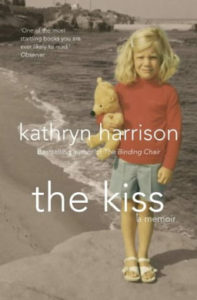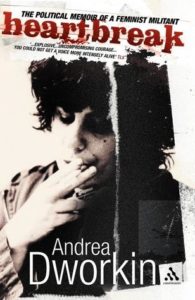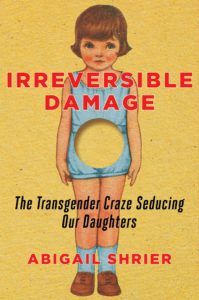
书评
《My Dark Vanessa》by Kate Elizabeth Russell
作者说她十六七岁时就开始筹划写这本书了,书里Vanessa在高中时的经历、想法都用的是那个时候积累下的素材。高中Vanessa的烦恼给人感觉太真实了:青少年时期,和最好的朋友闹翻就是天大的事,那个时候还定不清自我的边界,朋友就是自己的一部分,朋友要离开就像生生地把自己剖筋挖骨一样;那个时期对成人世界的感观充满了矛盾,既有向往,又有不屑,对自己的认知也混乱矛盾,一方面鄙视、厌倦成年人制定的规则,觉得他们的规矩毫无意义、荒谬可笑,但又感到无力去改变、对抗这些规则。这些矛盾的情感作者都非常忠实地表现出来了,我个人觉得这其实极难做到的,青少年时期的想法太纷杂、太混乱、太狂放,过了那个时期往往这些混乱的状态都会如云烟般从记忆里消散了,如果不是作者在自己还是个高中生时就把这些情绪记录下来,十年之后再写作时几乎不可能这么忠实地复现一个青少年的心理状态。
但也因为这样,少年Vanessa和成年Vanessa叙事交替时会有些不协调感。从一个虽然暗有创伤,但大多数时候能管理情绪的成年人,跳到每天脑子里充斥着一万个怪想法的心绪大起大落的高中生,作为一个和成年Vanessa年龄接近的读者,我很容易共情成年Vanessa的想法,而少年Vanessa会给我一种过于幼稚、幼稚到不合逻辑的格格不入感。我必须要努力地回忆自己十几岁时的状态,那个动不动”发疯“的自己,那个现在回忆起来充满了距离感,甚至更像在看他人电影的自己,一边对比这些脑子里的”旧电影“,一边才能勉强接受这种状态对于青少年是真实的。即使这样,从情感上来说,还是有种隔膜感。——我觉得这种隔膜感也是成年Vanessa难以接受,在变化了的道德语境下,重新叙述她少年经历的原因之一,因为想要客观地回忆起少年时代究竟发生了什么,实在是太难了。我觉得这种回忆上的困难性很可能和大脑发育的机制有关。
我们的社会在过去十年间,对成年男性和未成年女性的恋爱叙述,经历了从完全的”亨伯特“视角,到部分地引入”多罗莉丝“的声音和她的视角的这样一个变化。对此的道德判断,也不再是过去的看似”中立“,其实是”共情“施害者,——而是明确这个关系是恋童癖利用权力不对等进行的性剥削行为,”亨伯特“是一个故意伤害他人的罪犯,”多罗莉丝“则是本质的受害者。她可能对亨伯特的性侵行为有回应,甚至有些小动作看起来有些挑逗,但这些并不能改变她和亨伯特的关系本质。这段性关系的本质就是她在被恋童癖亨伯特性剥削。恋童癖用”爱情“神话来美化自己的行为,但是他们淫荡无耻、看到儿童就会出手勾引,跟倡导”专一“的”爱情“没有半毛钱关系。剥掉文学美化外衣后的赤裸裸的现实:——恋童癖面对成年女性就是个阳痿男。书里面,三十岁Vanessa试图再次和老师做爱,来回忆他们“过去”那种在她记忆里浪漫的感觉,但是老师完全硬不起来,因为”我对他而言太老了“。
少年Vanessa笨拙地模仿“诱惑的少女“,因为她以为“洛丽塔”有真正的权力。她模仿着少女明星在大众媒体里被塑造出来的样子。Britney Spears穿着露腰裙,表情叛逆,一边跳着暗示性的舞蹈,一边唱着”Baby baby one more time“。 Fiona Apple穿着白色小背心,透出瘦骨嶙峋的肩膀,她撩起裙子,露出同样青春期抽条时特有的骨节鲜明的腿。她躺在浴缸里,明显属于成年男人的、深色皮肤的、充满暴力感的脚踩在她脸侧,但是她却在唱
I’ve been a bad, bad girl
I’ve been careless with a delicate man
And it’s a sad, sad world
When a girl will break a boy
Just because she can
别人把脚踩在你脸边上,明显是个充满侮辱性的动作,但是女主人公摆出无所谓的表情,继续唱”When a girl will break a boy,Just because she can“,一副相信自己凭借”魅力“把男人玩弄于鼓掌中的样子,这明显属于认知失调。心怀鬼胎的人们跟着吹捧洛丽塔的魔力,”哦,她轻蔑一笑,男人都为之疯狂“。但也不见这些“为她疯狂的”男人把钱和房子都给她,也不见这些“为她疯狂的”男人为她洗衣做饭、忙前忙后。说白了,引发男人的强奸你的欲望算什么权力,”洛丽塔“根本没有任何权力,男人可以不负任何代价地把脚踩在她脸上侮辱她。
少年Vanessa在表演她从小说、电影里学来的“爱情”。她把自己脑子里对爱情的想象投射在一个无耻的恋童癖身上,硬是把老师因为怕被人检举,偷偷摸摸做出的猥亵行为,想象成了”想触碰又收回手”的高尚爱情。老师称赞她的头发颜色像枫叶,老师摸了她的腿,她就觉得老师深深地爱上了她,她开始想象老师对自己“爱得小心翼翼”,想象自己是那个魔女般的洛丽塔,看似无害但实际有着引人毁灭的力量,然后又对老师产生了一种呵护的冲动,”老师不由自主地爱上一个学生,他内心该多么害怕啊”,“我应该(像个成年人一样)勇敢地承担起在这段关系里的责任”。来自于一个成年人的示爱,也激发起了她的虚荣心,她觉得这比被同龄男生追求更能证明自己的魅力。她以为自己有特别之处,才被成年男子爱上。到了后面,她才发现老师对高中生的她产生性欲,不是因为她魅力超群,而是因为老师是恋童癖。老师对她也没有什么”专一“的”爱情“,他性侵、诱奸过不止一个学生。
“Pathetically in love with you.” As soon as he says this, I become someone somebody else is in love with, and not just some dumb boy my own age but a man who has already lived an entire life, who has done and seen so much and still thinks I’m worthy of his love. I feel forced over a threshold, thrust out of my ordinary life into a place where it’s possible for grown men to be so pathetically in love with me they fall at my feet.
我发现这类老丑男勾引少女的故事里面,诱奸犯大都是语文老师,房思琪、《My Dark Vanessa》, 还有《Being Lolita》——我觉得一方面可能是因为语文老师比较擅长花言巧语吧,擅长child grooming,还有这和语文这门学科的特殊性也有些关系。语文呢,是个专注于做梦的学科,对于小女孩来讲,梦想在她的生活里是多么重要啊,与此相对的,这个社会给小女孩设定的“梦想”是多么狭隘无聊啊。Andrea Dworkin在自传里面回忆她遇到过的恋童癖老师,“他们厌女,他们是恋童癖”,但是“在这个大多数成年人大多数时候都对孩子撒谎的社会里,这个恋童癖老师看起来就像唯一一个诚实的,敢于说出世界的真相的人。就像撒旦用知识果引诱夏娃一样。”
在夏娃”堕落“之前,”正义“的上帝做了什么呢?他为了方便“管理”人类,禁止人类求知,只想让人类生活于蒙昧之中,但人就是有向往知识的、好奇的天性啊。男权社会打压少女的求知欲,打压她们探索世界的野心,但少女直觉性地感到这一切”安排“都不合理,都在违逆她的天性。Vanessa面对她妈提供的”恋爱咨询“,在内心反驳,”为什么女孩子就要永远等待(男孩子来爱她)?“。少女的不服气、不服输的心,被恋童癖利用,成为了引诱她、要挟她的筹码。
In my case I was Little Eva, and a snake offered knowledge and the promise of escape from the constriction of a dead world in which there were no poets or geniuses or visionaries. All the girls, after all, were expected to teach, nurse, do hair, or clean houses, or combinations as if from a Chinese menu. Because most adults lie to children most of the time, the pedophilic adult seems to be a truth-teller, the one adult ready and willing to know the world and not to lie about it. Lordy, lordy, I do still love that piece of shit. (from “Heartbreak: The Political Memoir of a Feminist Militant”)
这类作品里还有个常出现的桥段:受害者明明身体上很抵触老师,会嫌老师的肉体恶心,但是又拼命压抑自己去迎合老师,在压抑自己的过程中体会一种自虐式的快感。我觉得受害者压抑自己对老丑男的肉体的厌恶的情节也对应着受害者黑暗人格毁灭自我的共谋,她体内那个暴虐的部分,本来是应该用来保护心灵里脆弱的部分,比如在被老JB冒犯到的时候奋起剁掉老JB,但是却在男权社会的洗脑下,和老JB合谋去压制、去侵犯那个天真脆弱的人格,在毁灭另一个人格的过程中获得一种战胜自己的快感,然而这种战胜自己并非是成长式的,而是摧毁式的,会导致人格的解离。她躺在床上,感到自己“灵魂出窍”,正是PTSD的解离症状。
这里面还有一段“强制性异性恋”的故事。一开始,她为最好的朋友Jenny亲近男友Tom,忽视了她而歇斯底里,她跟Jenny大吵,Jenny暗示她有同性恋倾向,被指出这点,她大为恐惧。她轻易地滑向Strane,也有一部分是为了向外界、向自己,证明自己不是同性恋。这一段真令我心碎。
But it killed me that Jenny deemed it something worth repeating: “too attached.” The implication of what being too attached to another girl might mean made my hair stand on end.
大学时第一次读《Lolita》,也是唯一一次,把我恶心坏了——同样恶心到我的还有《霍乱时期的爱情》——其实回想起来应该太多了,以至于我觉得所谓的名著之所以成为名著,不是despite misogyny,而是because of misogyny。纳博科夫在《Lolita》结语里把亨伯特痛骂了一顿,说自己从亨伯特的角度来写,是要忠实地表现恋童癖是怎么美化自己的犯罪行为的,亨伯特这个人物内心本质就是虚伪无耻,没有为他辩解的意思——但是他给自己找补的这些从小说里完全看不出来就是了。我觉得《My Dark Vanessa》的格局比《Lolita》高得多,因为这本书着重讨论了性化少女的社会文化对少女自我认知的扭曲,是如何便利性侵犯罪的。少年Vanessa看似是被Strane这一个人诱奸了,其实是被整个社会的恋童文化围猎了,而且因为Vanessa本人就成长在这种恋童文化里,吸收了种种毒素,导致她自己都参与了对自己的绞杀。
成年男人利用自己的权威诱奸少女的这一类犯罪,具有整个社会参与的复杂性,而受害者本身也是男权社会的产物,受到有毒文化的浸染,让她往往显得不那么像一个完美受害者。她做出性感的姿势、挑逗的表情,去表演一个她从杂志里、电视上学来的诱惑的“洛丽塔”,同时,又不由自主地为此感到屈辱,因为这种表演,不论怎么样被男权社会美化,对表演者本身而言就是屈辱的。受害者的一部分和加害者共谋,一起迫害她自己,这是事实,没有必要为了维持受害者的“纯洁形象”,去否认这种共谋。这只能说明她不止受害于加害者,还受害于把性化少女、意淫少女当做正常的男权社会洗脑。事实上,如果我们想要阻止更多的少女受害,就必须先认清了这种共谋和它的成因链条,而不是否认它的存在。认清了成因,才能切断链条,彻底根除滋生它的土壤。



 A Book Review of
A Book Review of